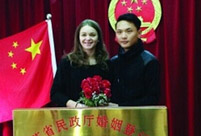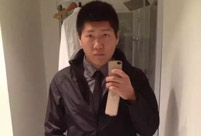

China and the United States are expected to discuss a range of issues during the eighth round of a bilateral Economic Dialogue.
Just a day before the China-US Strategic and Economic Dialogue, U.S Treasury Secretary Jack Lew paid a visit to Tsinghua University in Beijing.
He talked with students about some issues between the world's top two economies.
Among the topics of discussion were China's negative list and the bilateral investment treaty.
The visiting U.S Treasury Secretary said that the U.S. is waiting for the list and expecting constructive outcomes out of the BIT negotiations, before the end of President Barack Obama's term in office.
"I think that the remaining months of this administration are really very good time to double down and try, and make progress and get it, if not across the finish line, closer to the finish line, where if the BIT is in a well-developed place, it's much more likely to go forward."
Li Daokui, director of Tsinghua University's Center for China in the World Economy, says the United States and China need an agreement to remove trade protectionism in order to give investors the most preferential terms.
"China has made a lot of efforts in regards to this issue. For example, we have made a negative list, and it is quite a long one and needs to be downsized in a gradual fashion. So this round of dialogue could lead to substantial progresses for China-U.S. BIT talks."
He also expected certain principles can be identified at this year's dialogue for the new US administration to follow up.
"It's possible that the new U.S. president would have not formed a full-member administration in the same time period next year. So this dialogue will focus on issues in the longer run rather than the short-term ones. I hope that certain principles can be made out of this dialogue for the new administration to follow up. The incumbent administration can fix some principles, which will prevent the new administration from derailing from current path."
Li suggests the dialogue will also focus on the pending transition of U.S. monetary policy.
"The policy makers must take into consideration the impact the transition will have on the global economy, including China's economy, and how China's affected economy will come back to impact the U.S. economy. So we must stress repeatedly that the Federal Reserve must thoroughly consider the transition's impact on the world's economy before pushing for it, and the transition should go along only one direction."
The dialogue is scheduled to start on Monday in Beijing.
The two-day session will be co-chaired by Chinese Vice Premier Wang Yang and State Councilor Yang Jiechi, and U.S. Secretary of State John Kerry and Treasury Secretary Jacob Lew.
The dialogue is being held not long after the US imposed anti-dumping and anti-subsidy duties on a wide-range of Chinese steel products.
China has criticized these duties as irrational and harmful to diplomatic ties.
Still, academics and officials from both sides are expecting the dialogue to give a substantial boost to bilateral economic ties.
 French girl ties the knot with Chinese boy
French girl ties the knot with Chinese boy Beijing Style: ready for bare legs
Beijing Style: ready for bare legs Century-old station sees railyway evolution
Century-old station sees railyway evolution Enthusiasts perform Kung Fu at Wudang Mountain
Enthusiasts perform Kung Fu at Wudang Mountain Stunning photos of China's fighter jets in drill
Stunning photos of China's fighter jets in drill Monk's mummified body to be made into a gold Buddha statue
Monk's mummified body to be made into a gold Buddha statue Former Chinese solider of the French Foreign Legion seeks wife online
Former Chinese solider of the French Foreign Legion seeks wife online Asia's longest and highest suspension bridge to open to traffic
Asia's longest and highest suspension bridge to open to traffic China's first interactive robot looks like a beauty
China's first interactive robot looks like a beauty Top 20 hottest women in the world in 2014
Top 20 hottest women in the world in 2014 Top 10 hardest languages to learn
Top 10 hardest languages to learn 10 Chinese female stars with most beautiful faces
10 Chinese female stars with most beautiful faces China’s Top 10 Unique Bridges, Highways and Roads
China’s Top 10 Unique Bridges, Highways and Roads Public opposes legalizing sex trade report
Public opposes legalizing sex trade report Academic excellence needs cyber freedom within law
Academic excellence needs cyber freedom within law Student moms talk about having babies while still at university
Student moms talk about having babies while still at university Hugo Award-winning novel debuts multi-million budget stage adaptation
Hugo Award-winning novel debuts multi-million budget stage adaptationDay|Week